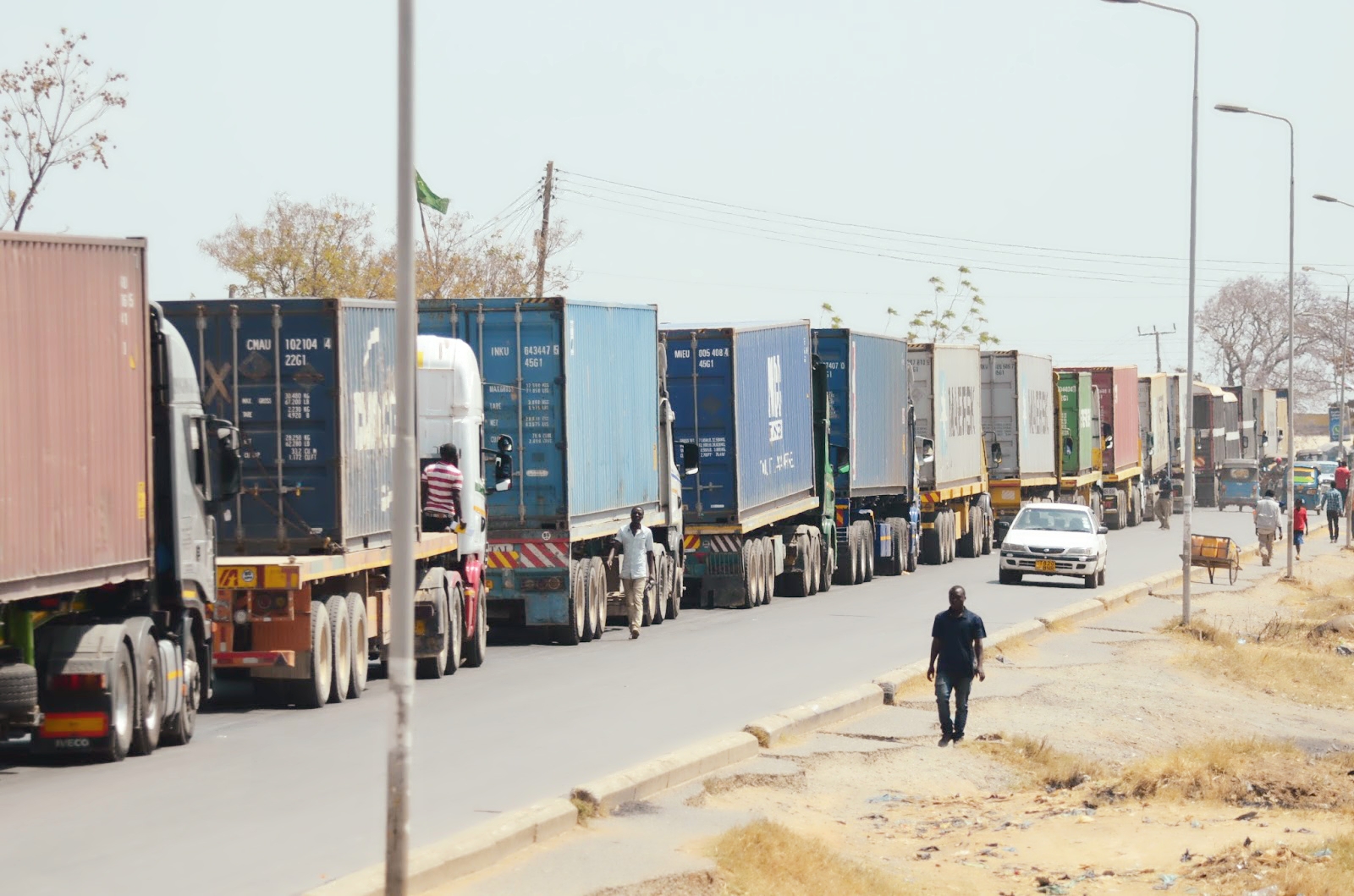Mpango and ‘fiduciary future’ of Dar economy

The Finance and Planning minister, Dr Philip Mpango (Left), addresses the media when he served as acting commissioner general of the Tanzania Revenue Authority .PHOTO | FILE
What you need to know:
The media and the market must be excited after what transpired in South Africa in the wake of the firing, hiring, and rehiring of Finance ministers within a week. No wonder Reuters has promptly posted an update entitled ‘Former World Bank Economist Mpango named Tanzanian Finance Minister.’
Dar es Salaam. At last we have a new minister for Finance. He is none other than Dr Philip Mpango. After a stint as the acting Commissioner of the Tanzania Revenue Authority (TRA) that collected nearly Sh1.3 trillion within a month, he seems fit to handle the Treasury.
The media and the market must be excited after what transpired in South Africa in the wake of the firing, hiring, and rehiring of Finance ministers within a week. No wonder Reuters has promptly posted an update entitled ‘Former World Bank Economist Mpango named Tanzanian Finance Minister.’
Probably reminiscing on their encounters at the World Bank and via the then hailed Public Expenditure Review (PER), Rakesh Rajani tweets: “Philip Mpango is a serious, technically sound, no-nonsense choice as minister for Finance. Huge juggernaut to manage!”
If the minister for Finance is, indeed, the ‘financial face’ of a country, then we should expect the ‘fiduciary future’ of Tanzania to reflect what has been his vision and mission. One can hardly expect that to drastically change given that President Magufuli has reiterated in his meeting with the business community that the country would continue with its ‘ideology-cum-policy’ of a “market economy.”
What Mpango - which literarily means ‘Plan’ - is bringing to the table, it seems, would be akin to what happened when President Mkapa was in power. It is more about ‘tightening the rope’ as far as revenue collection is concerned. But in terms of the underlying ideology/policy, it would be business as usual -- neoliberalism.
Unless some mysterious changes occurs, we should expect Dr Mpango to adhere as close as possible to this brief that captures his vision: “Socio-Economic Transformation for Poverty Reduction: Eight Key Messages for Unlocking Tanzania’s Potential.” It is important to note that at that time -- 2012/2013 -- he was the executive secretary to the President’s Office – Planning Commission’.
On “Message No. 5 – A strong developmental state”, he writes: “The Government of Tanzania will need to maintain a consistent focus on long-term national aspirations, undertake SMART [= Specific, Measurable, Attainable, Relevant, and Timely] interventions in areas that are not sexy to the private sector, leverage private sector investment, and forge joint ventures.
Government support is required to create an enabling environment for business and offer incentives for local entrepreneurs to lead growth. One of the important elements in the successful socio-economic transformation of the countries examined has been the central and strategic role of the state in economic growth and structural transformation.
The respective states were able to govern and guide development with a decisive ideological orientation, effective institutions and policies underpinned by adequate bureaucratic and organisational capacity and political will. Optimal policy measures related to economic as well as social development were fast-tracked and a lot of effort went into nurturing, encouraging and facilitating private sector participation.”
It would thus be foolhardy, especially for the ‘new breed’ of democratic socialists, to think that the ‘neoliberal state’ will stop regarding the private sector as the ‘engine of development’.
When one sees the state house hosting the Tanzania National Business Council (TNBC) or the Tanzania Private Sector Foundation (TPSF), he should know that the future does not belong to the erstwhile parastatal of the Ujamaa era. To stress this point, let us digress by crosschecking the statement below:
“The Tanzanian Government has recently announced that six private companies will replace the current state-owned Tanzania Electric Supply Company (TANESCO) in power generation and transmission by 2022, to reduce the financeable risk in power purchase agreements and improve tariffs’ structures.
“The six companies would be established in Tanzania’s Eastern, Northeastern, Northwestern, Central, Southeastern, and South Highland regions to strategically deliver electricity across the country and support development objectives.
“The transition process from the current integrated model with one parastatal organisation alone, to six private companies is part of the electricity generation sub-sector unbundling process, which aims at separating the power transmission and distribution segments to ensure competition and cost efficiency” - - http://www.tanzaniainvest.com/energy/tanzania - - to-establish-six-new-companies-for-power-generation-and-transmission [December 10, 2015]
Such a somewhat privatisation process should not come as a surprise given that one of the presidential promises had to do with industrialising Tanzania. But, as far as the post-socialist state is concerned, this time the captains of industry are mainly expected to come from the private sector. And who else is qualified to assist the president towards that direction more than Dr Mpango who penned “Message No. 4 – Industrialisation strategies” below?
“Experience from East Asia and Brazil indicate that home-grown, export-oriented industrialisation led by private entrepreneurs (local and foreign) opens up broader opportunities for sustainable growth.
“In this context, it would seem most logical that Tanzania embarks on industrial development based on specific industries and sectors where Tanzania has latent comparative advantage such as availability of raw materials (crops, livestock and fisheries, forestry resources and minerals) and on promoting industry clustering through Special Economic Zones (SEZs) and Export Processing Zones (EPZs) to produce electronic and electrical goods as well as other manufactured goods that are in high demand in the region.
“Drawing upon lessons from Southeast Asia, an industrialisation strategy for Tanzania will have to include industry-clustering preceded by a frontal attack on business-unfriendly and inefficient practices and cultures, minimising the frequency and intensity of policy reversals, reviewing labour laws for flexibility, securing land for mass production activities, improving logistics and supply chains for intermediate inputs, and upgrading infrastructure.
“These are necessary to unlock or attract FDIs and sunset industries from countries like China where firms are in the process of upgrading their business models and processes to move up the value chain and are willing to relocate their labour-intensive activities to countries and regions where labour costs are much lower.”
And to do so, Dr. Mpango would surely attempt to implement his “Message No. 6 – A stable and predictable political and macroeconomic framework”, which succinctly states that:
“In all countries surveyed, it is crystal clear that successful socio-economic transformation relies on the prudent implementation and adjustment of fiscal (tax and non-tax revenues, domestic and foreign debt, expenditure) and monetary policies (money supply, exchange rates, foreign reserves) as they affect a country’s competitiveness.”
For me the question would be: After Dr Mpango applies his “Tanzania Public Expenditure and Financial Accountability Review: Some Insights” (from the World Bank) to fill the government coffers, will our dear country graduate to middle-income status? In other words, can money end poverty? Or is ‘making poverty history’ primarily a matter of policy/ideology?




